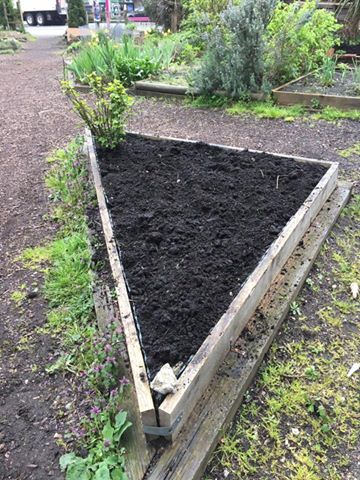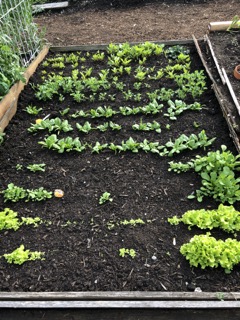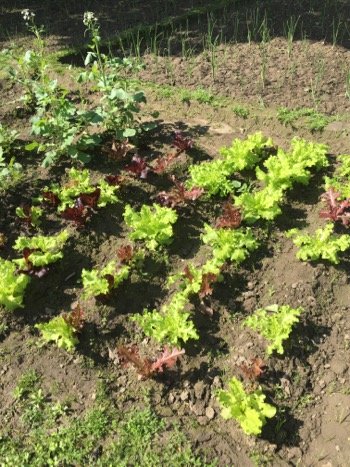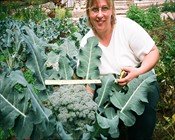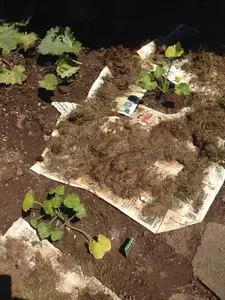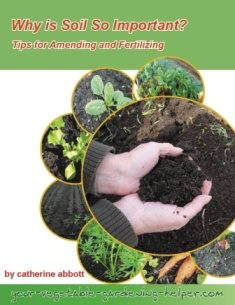Does your garden need soil fertilizers?
Nearly all soil needs regular additions of soil fertilizers to remain healthy. Soil fertility is constantly changing due to digging or tilling the soil, plants using up nutrients and leaching from rainfall.
There are two fertilizing categories organic and inorganic. There has been a lot of debate regarding which is better.
The choice of which you use is a personal preference. I personally believe in using and have had best results by following organic practices.
Soil fertilizer differences:
Organic soil fertilizers:
Some examples are cottonseed meal, blood meal, bone meal, rock phosphate, greensand each of these are high in one of the major nutrients in your soil takes longer to reach your plants, however they are improving your garden soil
Inorganic soil fertilizers:
These are called chemical fertilizers and are slow or time released can reach the plant quicker than organic fertilizers, however they do not improve your soil fertility
Your soil test and regular observation of your plants will help you identify if there are any nutrient deficiencies in your soil. There are 4 basic nutrients that plants need for good plant growth.
Nitrogen
- promotes leaf and stem growth
- gives plant the green color
- controls oxygen levels in plants
- plants need and use a large amount
- leach with rainfall
- Sources: blood meal, cotton seed, fish meal, cocoa shells, animal manures
- Signs of deficiency: leaves are yellowing and falling off stunted growth
- Signs of excess: grows really fast but is spindly plants do not produce any flower
- How much to add? low nitrogen add 5 pounds per 100 square feet average nitrogen add 2.5 pounds per 100 square feet maintain good nitrogen add 1 pound per 100 square feet
Phosphorus
- promotes seed germination, fruit growth, flowering and healthy roots
- gives winter hardiness to fall plantings
- plants need this in reasonable amounts
- Sources: bone meal, rock phosphate, animal manures, fish emulsion
- Signs of deficiency: dull green leaves with purplish tints stunted growth
- Signs of excess: if there is excess it will generally not affect the plant or soil
- How much to add? low phosphorus add 6 pounds per 100 square feet average phosphorus add 2.5 pounds per 100 square feet maintain good phosphorus add 1 pound per 100 square feet
Potassium (Potash)
- promotes young leaves and buds, root growth and seed production
- it improves the flavor of fruit and vegetables
- Sources: potash rock, wood ash, greensand
- Signs of deficiency: loss in color particularly in the vein structure brown spotted on the underside of leaves short and stocky plants
- Signs of excess: if there is excess it will generally not affect the plant or soil
- How much to add? low potassium add 10 pounds per 100 square feet average potassium add 5 pounds per 100 square feet maintain good potassium add 2.5 pounds per 100 square feet
Calcium
- not regarded a a true fertilizer
- is a soil conditioner usually applied in the form of lime
- calcium corrects an acidic soil
- speeds up the decay of organic matter in the soil
- makes phosphates in the soil available to plants
- improves soil structure (when added to clay soil will improve drainage)
- discourages pests and diseases, for example slugs and clubroot
- some plants prefer less lime such as
potatoes
- some plants such as the brassica family require more lime.
- Sources: lime
- Signs of deficiency: poor plant growth plants are diseased and often dying
- Signs of excess: soil will become toxic and plants will die
- How much to add? check out soil pH
Trace Elements
There are many trace elements needed for good plant growth. They are usually found in your garden soil. An in depth soil test will tell you if your soil is deficient in any of these. Deficiencies are usually rare.
7 most common:
Some gardeners confuse soil fertilizer with soil amendments. Soil amendments are used to improve the soil structure.
Return from Soil Fertilizers to Vegetable Garden Soil
Recent Articles
-
Organic Gardening soil amendments - List of material?
Aug 09, 25 10:57 AM
What materials are best used as organic gardening soil amendments? -
Tips for disease control in your vegetable garden
Jul 14, 25 11:15 AM
Easy tips for disease control to keep your vegetable growing its best. -
Joy of vegetable Gardening
Jul 14, 25 11:01 AM
Everything you need to know is right here to have Joy of Vegetable Gardening
